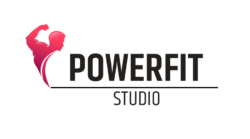In the rapidly evolving landscape of digital marketing, healthcare internet marketing firms stand at the crossroads of innovation and responsibility. As patients increasingly turn to digital platforms for healthcare information and services, marketing firms must leverage advanced technologies like artificial intelligence (AI) and automation while maintaining ethical transparency and empathy. The integration of AI-driven tools, automated campaigns, and data insights allows firms to improve patient engagement and streamline workflows, but success depends on how responsibly these tools are implemented.
AI-Driven Personalization in Healthcare Marketing
Artificial intelligence enables marketing teams to understand and engage patients in ways that were previously impossible. AI algorithms can process vast amounts of behavioral and demographic data to create personalized content that speaks to each individual’s needs and preferences. For example, an AI-powered system can analyze a patient’s search patterns for “chronic pain relief” or “mental health therapy” and deliver tailored educational content or service recommendations.
To execute this effectively, marketers should first integrate customer data platforms (CDPs) that centralize patient information from multiple sources—such as website analytics, email campaigns, and social media interactions. Then, apply AI tools like predictive analytics to segment audiences based on their likelihood to convert or engage. Once audiences are defined, deploy dynamic content strategies—customizing website copy, email messaging, and ad creatives based on user intent. Over time, machine learning will refine these insights, enhancing precision and ROI.
Automation for Streamlined Marketing Campaigns
Automation in healthcare marketing streamlines operations, minimizes manual tasks, and ensures consistent patient communication. Marketing automation platforms can manage everything from email drip campaigns to lead scoring and follow-ups. For example, an automated workflow might send a welcome email after a patient subscribes, followed by personalized educational material and reminders about appointments or wellness checks.
To implement automation effectively, start by mapping the patient journey—from awareness to engagement to conversion. Identify touchpoints where automation can add value, such as follow-up reminders or post-appointment satisfaction surveys. Then, use marketing automation software like HubSpot, Marketo, or Salesforce Health Cloud to design workflows that trigger communication based on user actions. Monitor engagement metrics regularly to optimize workflows, ensuring that messages remain relevant and human-centered rather than overly mechanical.
Predictive Analytics and Data-Driven Insights
Predictive analytics enables healthcare marketing firms to anticipate patient needs and optimize strategies accordingly. By analyzing historical data, predictive models can identify which channels, messages, and offers are most likely to resonate with specific audience segments. For example, if data reveals that middle-aged adults searching for “heart health tips” engage more with video content than blogs, marketers can allocate more resources to video production.
To execute predictive marketing effectively, firms must invest in data collection and analytics infrastructure. Begin with establishing clear data pipelines, ensuring compliance with privacy laws like HIPAA and GDPR. Use tools such as Google BigQuery or Tableau to visualize patterns and performance. Next, apply AI algorithms that use regression models or decision trees to forecast campaign outcomes. Finally, test these predictions in small-scale campaigns before scaling them to larger audiences.
Ethical Outreach and Patient Trust
Ethical marketing in healthcare is not optional—it is essential. Patients expect transparency, accuracy, and empathy in all communications. Misleading claims or intrusive targeting can damage trust and violate regulations. Ethical outreach involves obtaining informed consent for data collection, being transparent about data usage, and providing accurate, evidence-based information in all content.
To uphold ethical standards, firms should establish clear ethical guidelines and review processes. Every campaign should undergo compliance checks to ensure adherence to healthcare regulations. For example, a campaign promoting a new medical treatment should include disclaimers approved by medical experts and avoid exaggerating results. Furthermore, content should be inclusive and accessible, accommodating diverse audiences across different literacy levels. Establishing an internal review board that includes healthcare professionals can also help ensure content integrity and credibility.
Content Marketing in the Age of AI
AI-driven tools can enhance content marketing by assisting with topic ideation, SEO optimization, and even content drafting. Tools like ChatGPT or Jasper can help generate article outlines, while AI-driven SEO tools can identify trending topics and keyword opportunities. However, successful execution requires human oversight to maintain empathy, tone, and authenticity.
To leverage AI for content marketing, start with keyword research aligned with patient interests and healthcare services. Then, use AI tools to draft initial content outlines or suggestions, but always involve medical writers or subject matter experts to fact-check and add empathy-driven narratives. Supplement the written content with AI-generated visuals like infographics or video summaries for greater engagement. Finally, analyze performance data to determine which formats and topics resonate most with the audience, and iterate accordingly.
Voice Search and Conversational AI
With the rise of voice assistants and smart devices, healthcare marketers must optimize for voice search and conversational engagement. Patients often use natural language queries like “Where can I find a nearby urgent care?” or “How can I lower my blood pressure naturally?” Voice SEO focuses on long-tail, question-based keywords and conversational phrasing.
To implement voice optimization, marketers should first audit their content for conversational relevance. Create FAQ sections that answer specific, voice-friendly questions. Use schema markup to help search engines identify key information such as contact details and service offerings. Additionally, integrating chatbots and voice-based assistants on healthcare websites can provide 24/7 support and guide patients through appointment bookings or symptom assessments. These tools not only improve user experience but also reduce staff workload.
Integrating Human Empathy with Technology
While AI and automation enhance efficiency, they cannot replace human empathy—the cornerstone of healthcare communication. The most effective healthcare marketing firms combine technology with compassionate storytelling. For instance, AI can identify a patient segment interested in cancer care, but it’s the human touch that crafts a narrative of hope, recovery, and support.
To balance technology and empathy, firms should integrate patient stories, testimonials, and expert insights into digital campaigns. Train marketing teams to understand the emotional impact of healthcare decisions and reflect that sensitivity in every message. Implement periodic empathy audits to ensure campaigns remain people-centered. This balance not only enhances trust but also fosters long-term relationships between healthcare providers and patients.
The Road Ahead: Responsible Innovation
The future of healthcare internet marketing firms lies in responsible innovation—embracing AI and automation while preserving transparency, empathy, and integrity. As technology continues to evolve, marketers must adopt a patient-first mindset, ensuring that every digital touchpoint informs, educates, and empowers. By integrating AI with ethical outreach and human insight, firms can redefine healthcare marketing as a force for genuine patient connection and positive health outcomes.











